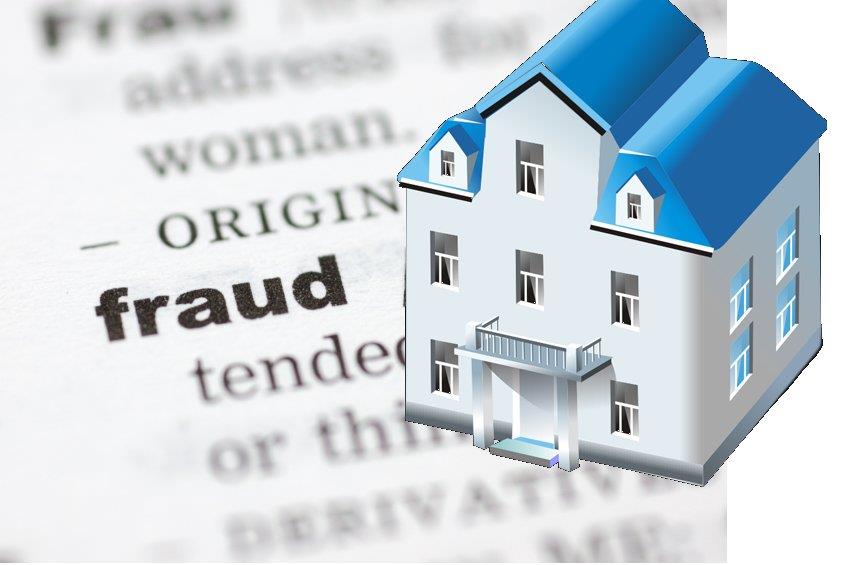Imagine the shock, the disbelief, the sheer terror of discovering that the place you call home, perhaps an asset you’ve poured decades of your life into, has been claimed by a complete stranger. This isn’t a plot from a thriller novel; it’s the unsettling reality of property fraud, a crime that is increasingly leaving homeowners vulnerable and reeling from unexpected loss.
Property fraud, often referred to as deed fraud, is a deeply deceptive scheme where someone unlawfully places their name onto your property’s deed. They effectively assert ownership over your land, an act that feels impossible yet is happening with troubling frequency.
KPRC 2 Investigator Amy Davis, who has reported on these cases for years, highlighted one instance where a family’s home, held for sixty years, was startlingly transferred to an unfamiliar name without the rightful homeowner even knowing. This kind of theft underscores just how real and devastating this threat can be.

The rise in this crime makes it absolutely essential for property owners to arm themselves with knowledge and adopt preventative measures. Seeking expert guidance is a vital step in understanding how to effectively safeguard your property from falling victim to such fraudulent transfers.
To shed light on these protective steps, Amy Davis connected with Dallas County Clerk John Warren, a recognized authority on the subject. Warren shared valuable insights on the KPRC 2 show “Ask Amy,” emphasizing that proactive measures are your strongest defense against deed theft.
Warren explained that a critical initial action property owners can take is registering for a fraud alert system with their local county clerk’s office. This system is designed to notify you if any document is recorded that involves your name or property.

“You go there and register for the property fraud alert system that we have with our recording system,” Warren stated, detailing the simple process. He added, “If a document is recorded with your name, you will receive an alert.”
Receiving such an alert is a powerful early warning signal. As soon as you are notified that a document has been recorded concerning your property, you can immediately contact the clerk’s office to verify its legitimacy. This swift action can be instrumental in catching fraudulent activity before it escalates and causes significant damage.
Warren also pointed out the value of extending this protection beyond your own property. You can often register properties belonging to aging parents or other family members, adding an extra layer of security for those who might be more vulnerable or less able to monitor their affairs constantly.
However, Warren acknowledged a significant challenge: not all counties currently offer a dedicated property alert system. He specifically mentioned that Harris County, for instance, does not yet have such a system in place for its residents.
For citizens in counties without a property fraud alert system, Warren offered alternative strategies. He advised homeowners to regularly check their county’s appraisal district website. These websites typically list every piece of property within the county and identify the current owner.
“For those counties that don’t have a property fraud alert system, I would advise every citizen who is a property owner to go to their appraisal districts website,” Warren suggested. He explained that when a document conveying property or changing ownership is recorded, the appraisal district usually updates this information quickly, often within 72 hours depending on their workload.

He elaborated on how to use this resource effectively: “If the county does not have a property fraud alert system, go to your appraisal district’s website, put in either your name or your property address.” If you search by name, it will show if you still own the property. If you use the address, it will display the current owner.
“So there is something you can do,” he emphasized. If you check the appraisal district’s site and see that the ownership of your property has changed to someone else’s name when it should still be yours, “that’s when you also then contact the clerk’s office as it relates to that change, as it relates to ownership according to the appraisal district’s records.”
Warren recommended checking the appraisal district website periodically, suggesting that at least once every quarter is a good practice to maintain vigilance over your property’s status.
Several counties in the Houston area region *do* offer property fraud alert systems, providing residents with this crucial layer of defense. These include Fort Bend County, Galveston County, Brazoria County, Colorado County, Austin County, and Montgomery County, which utilizes a system known as FraudSleuth.
On the other hand, a number of area counties currently lack these dedicated property fraud alert services. The list of these counties includes Harris, Chambers, Liberty, Waller, Wharton, Matagorda, and Walker.
Delaware officials are also actively sounding the alarm about deed fraud, highlighting it as a significant threat to homeowners, particularly given that a home is often an individual’s most valuable asset. Michael Kozikowski Sr., the New Castle County recorder of deeds, stated plainly, “In Delaware, deed fraud is a growing concern, and homeowners need to take measures to protect themselves.”
Delaware has taken a proactive approach, with each of its three counties offering an alert system. These systems are designed to notify enrolled residents if any activity occurs involving their deed, whether it’s accessed or modified in any way.
Eugenia Thornton, the Kent County Recorder of Deeds, stressed the particular importance of these alerts for older adults who have paid off their mortgages. Without a lender monitoring the title for changes or issues, it becomes considerably easier for scammers to make unauthorized and unnoticed alterations to the deed.

Thornton identified specific demographics most susceptible to this crime. “Citizens over 65 with a fully paid mortgage and those who own multiple properties — especially vacant ones — are the most vulnerable to this type of crime,” she warned, underlining the need for targeted awareness and protection efforts for these groups.
While signing up for these alert systems won’t physically stop the fraudulent act from happening, Thornton reiterated that the best defense for a homeowner is being notified as quickly as possible after the crime occurs. Rapid notification allows the victim to respond swiftly and begin the process of mitigating the potential damage.
Criminals employ a variety of sophisticated tactics to illegally transfer property titles. These methods can range from forging signatures on legitimate-looking deeds to submitting entirely fraudulent documents directly to county recorders’ offices, attempting to process the illegal transfer through official channels.
Beyond forging documents, scammers also exploit online platforms. They may list a property for sale on real estate websites even though they don’t own it, sometimes trying to push for cash-only sales to avoid scrutiny typical in financed transactions.
Alexandra Reed Baker, the Sussex County Recorder of Deeds, noted an increase in these fake home listings, with scammers impersonating homeowners and even contacting local real estate agents with properties they don’t possess. She added that local real estate agents are aware of this tactic and remain vigilant, which helps catch these fraudulent listings.
Baker offered reassurance that often, these scams are detected before they progress too far. “Usually, it gets caught before it escalates to a contract and then to the settlement table,” she explained, highlighting the role of alert industry professionals in preventing the final fraudulent transfer.
Delaware residents interested in signing up for the county alert systems can find information and registration links readily available. New Castle County provides details at newcastlede.gov/2398/AlertMe, Kent County uses pfa.uslandrecords.com, and Sussex County offers information at sussexcountyde.gov/deed-fraud-alert.
Related posts:
Best Identity Theft Protection Services Of 2025
2 Helps You: How Greater Houston area homeowners can protect their home from deed theft
Help Protect Your Property from Fraud



